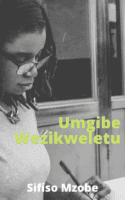The news of Mr Pootona’s guilt and dismissal has a marked effect on the community. Up to this point it had all seemed unreal, like a soap opera, and people had enjoyed the opportunity to gossip.
But, as the full details of Mr Pootona’s crimes leak out, a more serious attitude starts to develop.
“How could such things could have happened, right under our noses?”
“Hau! Such a man reached the position of Deputy Principal and church deacon without any of us suspecting anything?”
“We must start talking to our children. About what happens at school, about everything…”
“I’ve realised how little I know of my children’s lives and their day-to-day activities.”
“We trust those teachers so much, and give them so much responsibility for our kids. But we have no idea what is going on in the schools.”
There is also a change in attitude among the students at Tšwelopele High, especially the Grade 11s. It’s motivated mostly by Tshereletšo. He’s grown up a lot in the past weeks. First he’s had to deal with his shock, rage and sense of powerlessness at someone he loves being so abused. Then he’s seen the disciplinary process in action and realised: there are structures and procedures to protect learners.
In the waiting room at the district office he had seen a booklet about how to set up and run a Learners’ Representative Council, and had been given copies to circulate among students.
Now, during the last week of school, while the teachers are busy marking exam papers, he organises meetings of the Grade 11s. He wants to form a strong LRC in their Matric year. Some are suspicious, saying that he’s only doing this because of what happened to his girlfriend. But most respond positively – they are eager to take on responsibilities and to help build a school to be proud of.
Mr Morovhi is also busy during the last week of school, motivating his teachers and encouraging learners to tidy the school grounds. Everyone is surprised by his renewed energy. A few of the teachers suspect he’s just trying to protect his job, but they’re soon carried along by his infectious enthusiasm.
On the last day of school, he calls a final assembly and makes an inspiring speech. He talks about the shocking events that have shaken the very foundations of the school, pays tribute to the courage of the student who reported the incident, and thanks the teachers who supported her. He takes full responsibility for having allowed these terrible things to happen, blaming himself for not being more vigilant and more actively involved in the management of the school. He apologises to the students and to the teachers and ends: “I only hope that I shall have the opportunity to undo my mistakes”.
With their year-end reports each student receives a letter for their parents or guardians requesting their presence at a special meeting to discuss recent events at the school and the way forward.
*****
This is the first school meeting that Ma-Maleka has attended since Kefentše started high school. She sits with Ma-Ragele – the Principal invited her even though she no longer has a child at the school. It is the largest gathering anyone has ever seen at the school: many more parents than usual, all the teachers, members of the SGB, and a good number of students.
Talking directly to the parents, Mr Morovhi explains exactly what led to the suspension then dismissal of Mr Pootona. Again, to everyone’s surprise, he confesses that he failed to report the matter when it was first brought to his attention, and he takes full responsibility for everything that has happened while he has been Principal. The room is silent as he continues:
“Two days ago I attended my own disciplinary hearing, for negligence in failing to report this case. My punishment is a fine of two month’s pay, a judgment I willingly accept. I also want to publicly apologise to the learner and her parents, and to the teacher who brought this matter to my attention. As many of you know, I am due to retire at the end of next year. I have been teaching for almost forty years, and the thought of leaving the profession under such a cloud is too terrible.
“There are many things at Tšwelopele High that are not as they should be. As Principal, I pledge to do everything in my power to set them right. But we all need to work together – parents, teachers and learners. Together we shall succeed!”
At once a lively but surprisingly focused discussion follows. Many parents stand up and say that they too must take some of the responsibility; that they need to become more involved in the school and in the education of their children.
Ma-Ragele bravely stands and tells her tragic story, and encourages parents to be more open to discuss things, even sexual matters, with their children.
Tshereletšo tells of the students’ plans, already discussed with Mr Morovhi, to revitalise the LRC. He says they want to start the new school year with a campaign to create awareness about sexual harassment and abuse.
The evening ends with a new SGB elected – and there’s a much higher proportion of women this time.
*****
Kefentše and Tshereletšo are sitting together in the yard at her home, enjoying the late afternoon sun. Ma-Maleka and the children are laughing as they chase chickens into the new coop that Tshereletšo built for them next to the vegetable garden.
Kefentše has just finished telling Tshereletšo about R500 that her mother received from Ra-Maleka, delivered by a man returning from the city. It came with a letter saying that some of the money must be used to pay her school fees for the next year.
Tshere: He’s also trying to correct his mistakes.
Kefe: You’re right. Mama says he ran away to the city because he felt powerless to do anything about Pootona.
Tshere: It’s amazing, you know. Since this whole story began, with something so terrible, many good things have come out of it.
Kefe: It’s true … but … there’s just one thing I have to know before I can close this chapter in my life, Tshere. And that’s … how what Pootona did to me will affect us. We’ve never talked about it. I’m no longer a virgin and–
Tshere: Stop! There’s nothing to talk about. He forced you. You did nothing wrong, nothing. The first time we make love will be the first time for both of us.
Kefe: Thank you, Tshere. I love you.
***
Tell us what you think: Does the idea of physical ‘virginity’ still matter today? What do you think of Tshere’s response to Kefe’s concern?
***
Need help with a similar problem? Click here to read the Sexual Abuse Handbook.





